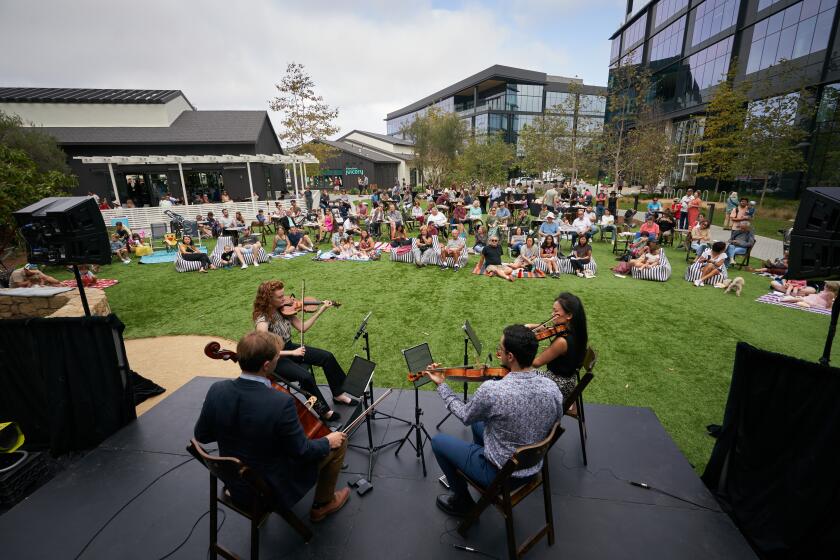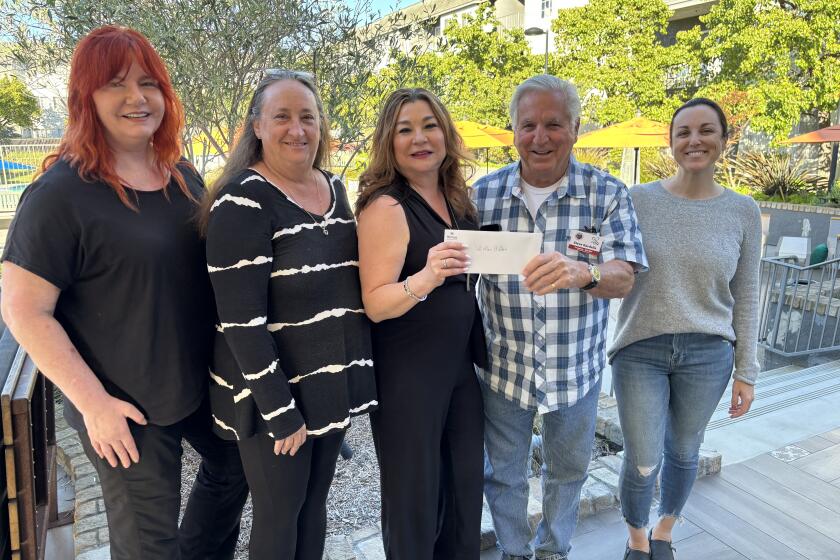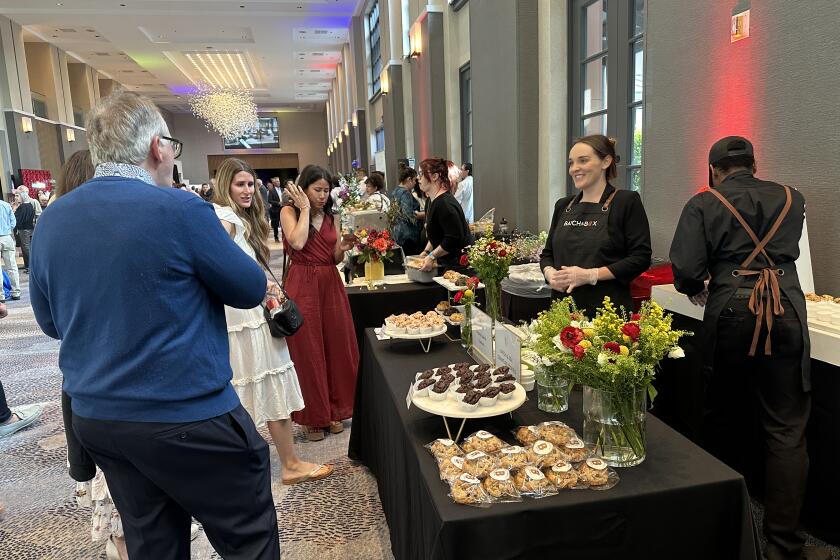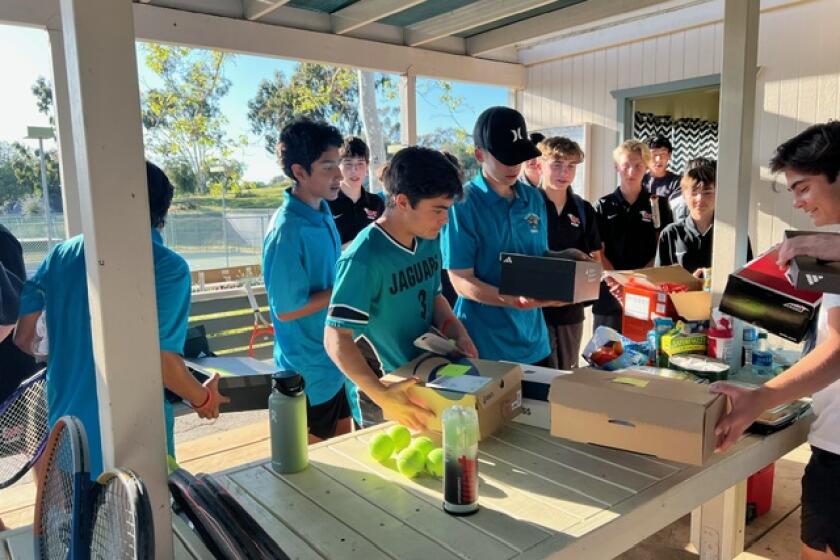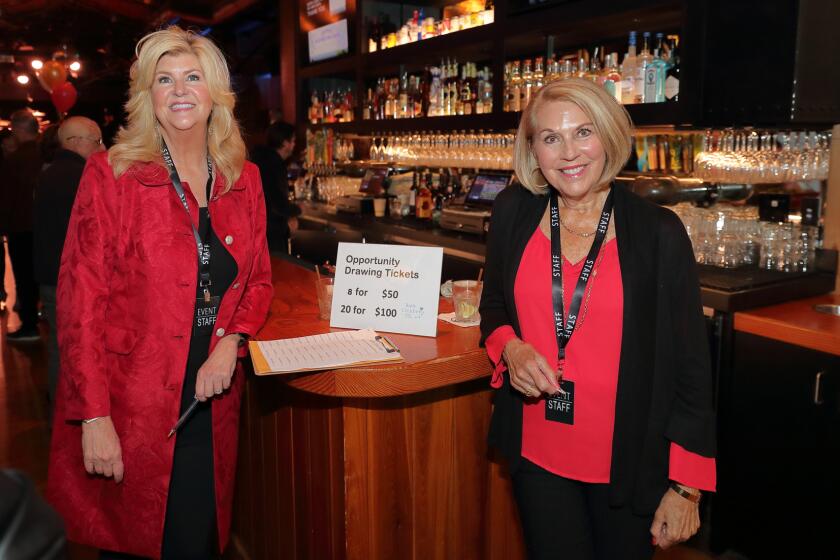Del Mar Dance for Diabetes to raise funds for research foundation
One man survived the Vietnam War, the other continues a lifelong battle with a devilish disease.
Dr. Alberto Hayek left the Army to pursue his career as a pediatric endocrinologist. David Winkler became a lawyer and developer.
Their lives entwined because of their mutual passion for curing and preventing Type 1 diabetes. To further that quest, they teamed in 2012 to form the Diabetes Research Connection.
The Del Mar-based nonprofit funds grants helping young T1D researchers explore their hypotheses so they can qualify for greater support in proving their theories.
“What we’re trying to do is fund innovative, out-of-the-box ideas that are credible, which could lead to tremendous breakthroughs in terms of curing the disease as well as trying to prevent it,” Winkler said.
To financially boost its mission, the organization is holding its inaugural Del Mar Dance for Diabetes from 6 to 11 p.m., Sept. 29, at the Del Mar Plaza. The event will feature live music provided by Susan Foster and Encore Event Entertainment from 6 to 9:30 p.m.
The live music will be followed by a “silent dance” in which participants will groove to sounds they will hear through headphones so the event complies with the small city’s outdoor noise curfew.
Also included in the happening are a dinner and open bar with food and drink provided by area and plaza restaurants and vendors, and a silent auction.
Information on tickets and prices can be obtained at diabetesresearchconnection.org/dancefordiabetes and 844-484-3372.
Organizers emphasize the money raised will go toward the operation’s functioning, while 100 percent of the donations for research are reserved for that use.
Hayek and Winkler said they had hoped to obtain sufficient funding for researchers’ projects through the method of “crowd funding,” which relies on the company’s website and social media to attract donors.
“While it’s been minimally successful, we found we have to have other ways to generate revenue, like this dance that is being put on at the Del Mar Plaza,” Winkler said. “We want to continue to represent to donors that 100 percent of their donations to a specific project on our website goes to the researcher’s lab.”
Overseen by Executive Director Christina Kalberg of Carlsbad, the Diabetes Research Connection has funded 12 projects to date and has a goal of raising enough money to issue 10 grants of up to $50,000 apiece per year.
Among the projects, Wendy Yang at the University of Washington focuses on new cell replacement strategies to restore insulin production in T1D patients.
Peter Thompson at the University of California, San Francisco, is working on identifying what goes on in beta cells on their path to destruction, leading to the development of diabetes.
Joseph Lancman at the Sanford Burnham Prebys Medical Discovery Institute is looking at the possibility of directly generating replacement beta cells from more abundant, nonessential cells and from immune-privileged tissues within the patient’s body, eliminating the need for more potentially damaging methods.
Hayek said his focus on T1D, the most destructive and life-threatening form of diabetes, came early in his career when he saw the ravaging effects it had on children and young adults.
In the late 1960s, Hayek left his homeland of Columbia to pursue his medical career in the United States. Rather than relinquish his legal immigrant status, Hayek resigned himself to being drafted into the Army during the Vietnam War.
After surviving a year as a flight surgeon in the Mekong Delta, he returned to the U.S to build his career based in San Diego as a pediatric endocrinologist and diabetes researcher.
Hayek retired from UCSD about four years ago and remains a Professor Emeritus of Pediatrics there. The idea, however, of doing nothing for science didn’t sit well with the doctor, who is renowned for his pancreatic islet research and experimental cell replacement strategies.
“I began to think it would be a pity to waste all my knowledge of diabetes and all the people I knew, and I thought somehow, I could put to good use my expertise and experiences with the disease,” the La Jolla resident said.
He was particularly concerned about the difficulty encountered by fledgling researchers with potentially groundbreaking approaches in getting support for their ideas.
Thinking about how to develop a support system for these researchers, Hayek remembered Winkler. He had been on the board of directors at San Diego’s Scripps Whittier Institute for Diabetes, where Hayek remains scientific director.
“I needed somebody who has tremendous experience and passion for funding Type 1 diabetes research, and I really thought that person was David Winkler,” Hayek said. “It was really a natural alliance.”
Winkler’s zeal for diabetes research stems from 58 years of personal experience.
“I’ve had the disease since the age of 6 and other members of my family have it,” the Solana Beach resident said. “I’ve seen the devastation of this disease ranging from it being the leading cause of adult blindness to cardiovascular issues and neurologic issues.”
That the fundraiser is being held at the plaza is fitting because it was Winkler and his firm the Del Mar Partnership who developed the initially controversial but ultimately applauded project three decades ago.
A native of West Hartford, Conn., Winkler went to Tufts University with the aim of becoming a diabetes researcher, but found laboratory life stifling.
Though he came to Southern California to study environmental law at the University of San Diego, he turned to real estate and became a successful developer.
Among his greatest accomplishments is the award-winning plaza built in 1989 after narrowly winning Del Mar voter approval. A regional as well as local destination, the plaza features upscale shops, restaurants and spectacular ocean views.
The Solana Beach resident copes daily with diabetes, including daily insulin injections. He has witnessed numerous advancements, including a much improved method of measuring blood glucose levels.
“The real advances have been made in blood-glucose monitoring. My blood-glucose level is monitored 288 times a day,” he said, adding that as a child that occurred only quarterly when he went for a checkup.
Ultimately, however, improved injection and monitoring methods don’t address cure and prevention.
“While there have been advances in terms of diabetics being able to use these devices, there is not a cure,” Winkler said. “What we’re working to find is a biological cure.”
In molding the Diabetes Research Connection, Hayek and Winkler formed a five-member board, of which Hayek is president. They established an 80-member peer review committee consisting of leading Type 1 diabetes experts from throughout North America.
”The most important thing to us is to have a credible organization,” Winkler said. “Therefore, we have to fund only credible research. As a result of this peer review committee that we’ve established, we ensure that the projects are feasible.”
Also, he said, the process ensures the researchers will have facilities and mentors appropriate for their research.
The goal, he said, is “to help these young innovative scientists accomplish their experiments so they can develop the preliminary data needed to show the beginnings of “proof of principle” and then apply for much larger grants.
“Fortunately, we’ve been successful in not only recruiting researchers, but in helping them move down the path to then apply for larger grants.”
Get the Del Mar Times in your inbox
Top stories from Carmel Valley, Del Mar and Solana Beach every Friday for free.
You may occasionally receive promotional content from the Del Mar Times.
